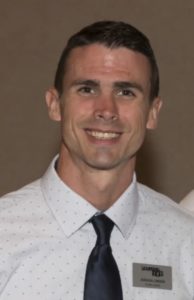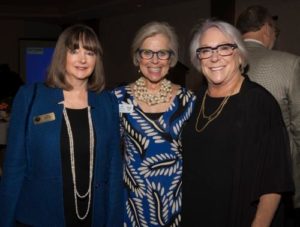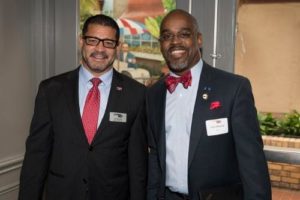Project 180’s Residential Program was created to provide a safe, stable environment in which formerly incarcerated men in active recovery might rebuild their lives – and that’s precisely what its most recent graduate, Joshua Linden, has accomplished. Joshua now embarks on a new and exciting chapter in his life after successfully completing the program.
On January 4, 2020, Joshua began his journey at Project 180 and moved into Nik’s House, one of Project 180’s Residential Program homes. Just one week out of Sarasota County Jail, Joshua had no job, no money, no cell phone, and was estranged from his family due to his behavior during his years of drug and alcohol addiction.
After hitting rock bottom, Joshua knew it was time to change and find a support system that would allow him to focus on recovery as the foundation for all other aspects of his life.
“I know for a fact in my heart of hearts that if I didn’t move into that house I would have relapsed by now. I’d be dead or in jail,” Joshua said as he reflected on what his life might look like today if Project 180 didn’t exist.
Upon entering Project 180’s Residential Program, Joshua was provided with not just a house where he could recover and rebuild, but a supportive and kind home – something he had not experienced in a very long time.
When asked what the most important part of the Residential Program was for him, Joshua said it was “knowing that people have your back, knowing that you have a legitimate second chance at life, and having a feeling of security and a safe home. I have not had that in a very long time so that was super important.”
Project 180’s Residential Program focuses on providing comprehensive services to formerly incarcerated men who are sincere about turning their lives around and are willing to put in the work. The program includes stable housing, nutritious food, assistance with obtaining a cell phone, clothing, transportation, and necessities that many of us take for granted every day.
“To be able to get a phone was huge,” Josh explained. “How are you going to get a phone without a job? How are you going to get a job without a phone? It was a catch-22. [Project 180’s help in getting a cell phone] was extremely helpful. Just being in that environment in the house where my basic needs were met allowed me to focus on my recovery instead of worrying about little things here and there.”
Project 180 gave Joshua the opportunity to rebuild his life one step at a time. Now, only seven months later, Joshua has a stable job, has regained his right to drive, owns a car, and has moved into a one-bedroom house.
“There’s no way to put it into words. This is the first time in my adult life that I have moved into a place on my own,” Joshua said.
As Joshua enjoys a life he once “could have never imagined,” he looks forward to staying clean and sober, reconnecting with family, working hard every day, and focusing on his art and music in his spare time.


“Turning lives around isn’t just about putting a roof over someone’s head and a Band-Aid on the problem,” said Barbara Richards, President/CEO and Founder of Project 180. “We have to dig deep: understand where these men are coming from, what their specific needs are, and how we can help them build a new life of purpose and meaning that will ultimately make our community a much safer place to live.”
As Joshua begins this exciting new chapter in his life, Project 180 celebrates his success alongside the community that makes life transformations like this happen.
“Donors, community members, and volunteers are the ones who make it possible for deserving men like Joshua to have a second chance at life,” Richards said. “The greatest reward for us all will be to watch Joshua soar and build a life of happiness for himself and those around him.”




 Our goal is to reduce the impact of repeat offenders upon public safety, public spending, Florida families and individual lives.
Our goal is to reduce the impact of repeat offenders upon public safety, public spending, Florida families and individual lives.